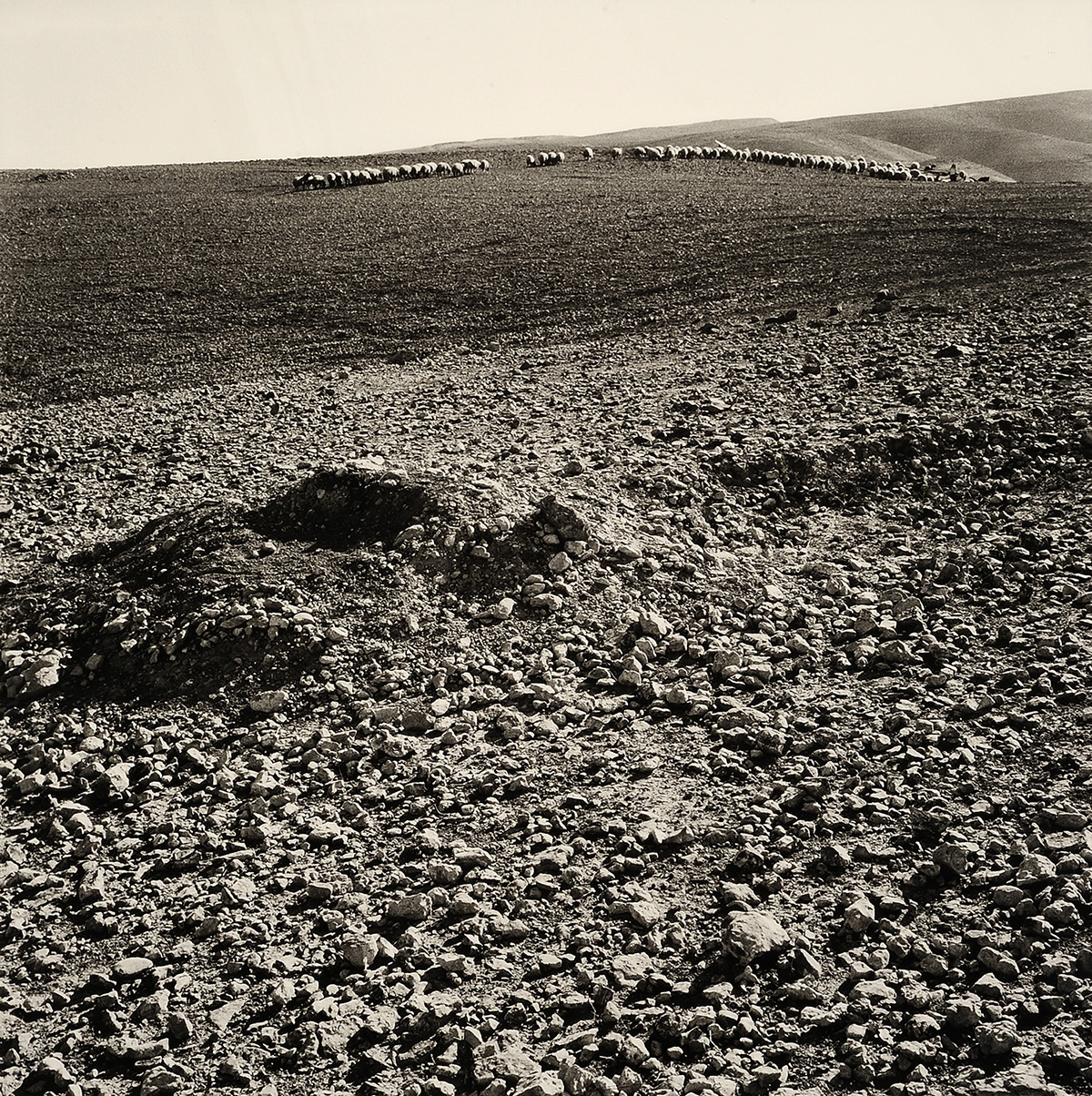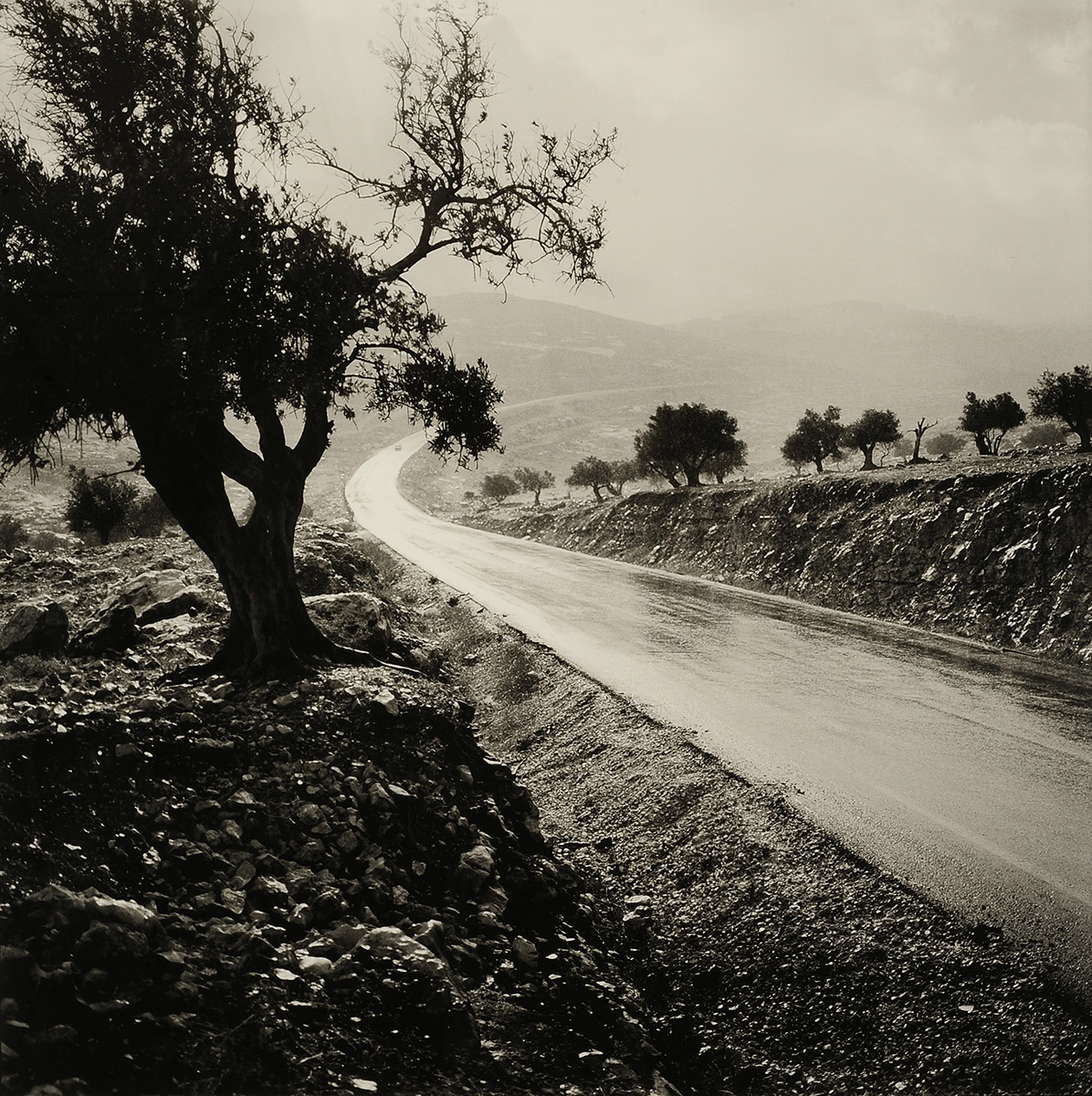Greg MARINOVICH (b. 1962)
A new tarred road runs through ancient Palestinain olive orchards to link Jewish West Bank settlements to Jerusalem and pre-1967 Israel. Settlements are Jewish residential nodes in areas of Palestine/Jordan/Syria/Egypt occupied after the wars against Jordan, Egypt and Syria.
1997
black and white photograph
115 x 115 cm
BIOGRAPHY
Greg Marinovich is a Pulitzer-awarded South African photojournalist, filmmaker and photo editor. He has spent 25 years doing photojournalism and filmmaking around the globe.
He was born in Springs, Gauteng, the son of an immigrant from Korčula, Croatia.
From 1983 to 1985, Marinovich participated as a mandatory conscript in the military. After the initial two years, in order not to participate in camps, he left the country and moved to Botswana. At the northern border he met members of the South West African People’s Organisation (SWAPO), which sparked his desire to explore the living conditions of people enduring extreme political times.
On 17 August 1990, Marinovich went to Soweto to cover the fighting in the Hostel War. He sold the photos of the killings he witnessed to the Johannesburg office of Associated Press (AP) Johannesburg office. From that day on, he regularly worked in Soweto, often working for the AP. The most notorious event that he documented during this period was the murder of Lindsaye Tshabalala, a Zulu Inkatha supporter and burning of his body. The photos received the Pulitzer Prize for Breaking News Photography in 1991.
He co-authored (with João Silva) The Bang Bang Club: Snapshots from a Hidden War (2000), which details South Africa’s transition to democracy. In the book, he writes about his work
his work: ‘Black photographers had the language and cultural skills and contacts in black communities that allowed them greater insight and access, unlike the whites, who hardly ever understood even one of the nine major Black languages. But Black photojournalists were much more prone to harassment by the police.’
He is also the author of Murder at Small Koppie (2017) based on his investigations into the Marikana massacre of miners by police. This book was awarded the Alan Paton prize for non-fiction in 2017.
Marinovich has been engaged for international assignment in various conflict zones including Angola, Bosnia and Herzegovina, Chechnya, Croatia, India, Mozambique, Russia, Rwanda, Somalia and Zaire. He has been shot and wounded four times while covering conflicts in South Africa and Afghanistan.
In 2009, he was the recipient of the Nat Nakasa award for courageous journalism and was a Nieman fellow at Harvard in 2013/4. He is an associate editor for the Daily Maverick, teaches at Boston University’s Journalism and Film & TV schools, and teaches photography at the Harvard Extension School.



